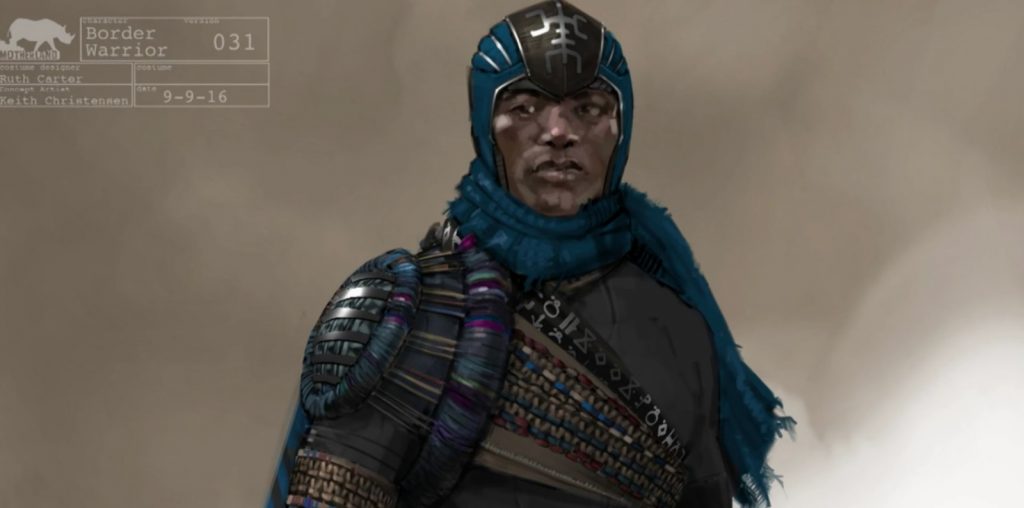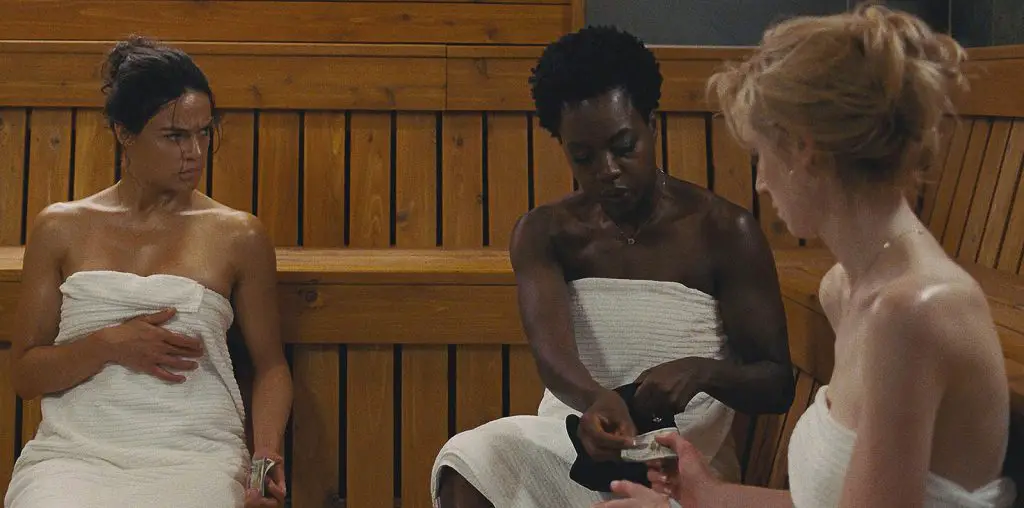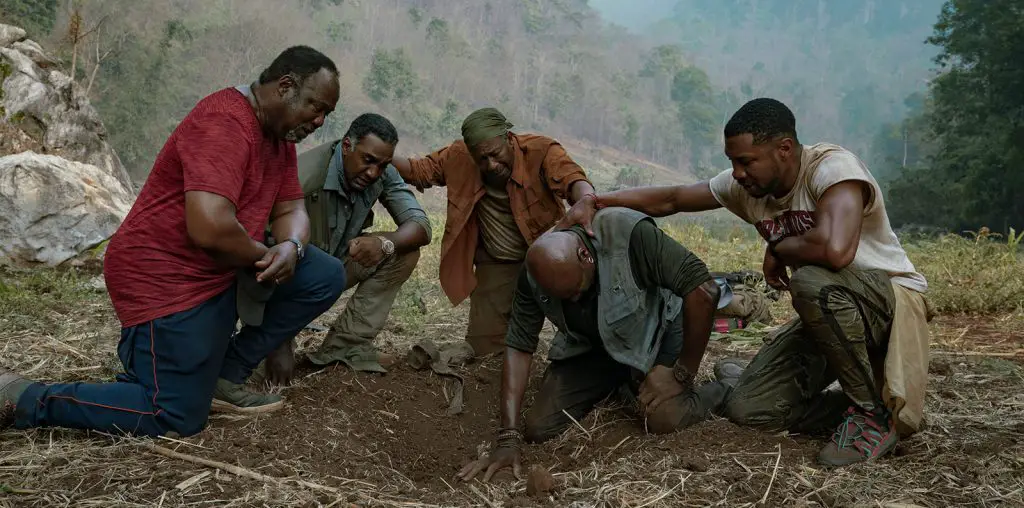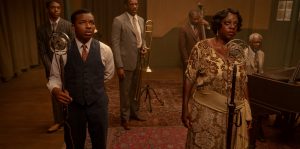
That’s clearly what counted with Wolfe, Santiago-Hudson, and the rest of the crew. Ma Rainey’s Black Bottom does not adhere to expectations, marching to the soulful, jazzy beat of its own drum. It explores eternal themes of prejudice, exorcising your demons through art, crushed dreams, and unrealized potential. But first and foremost, it is an indelible character study, one that loves and feels for its characters but isn’t afraid to cut deep under their skins.
I can talk all day about Mark Ricker’s top-notch production design, or Tobias A. Schliessler’s extraordinary cinematography, both of which convey the period splendidly. I can go on and on about the original jazz songs featured in the movie, complemented by Branford Marsalis’s magnificent score. Yet it’s the performances I’d like to focus on.
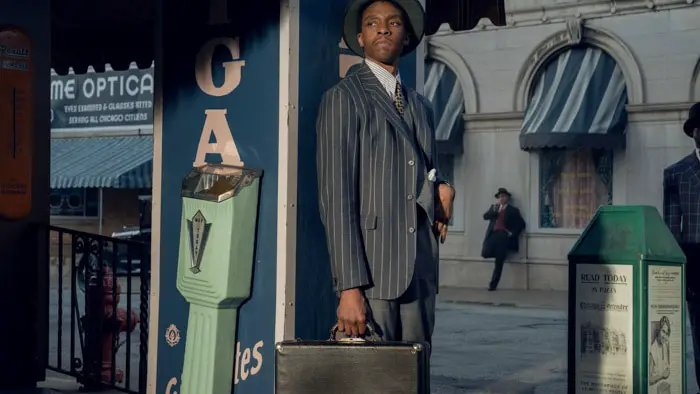
MA RAINEY’S BLACK BOTTOM (2020) Chadwick Boseman as Levee. Cr. David Lee/NETFLIX
“Whether [Chadwick Boseman] knew that this would be his swan song or not, he went deep…”
Wearing her excessive make-up, horsehair wig, and gold teeth proudly, Ma Rainey, through sheer grit and determination, managed to become an entrepreneur extraordinaire in Jim Crow America. Who better than Viola Davis to portray years of hardship and perseverance, years of dealing with racism and misogyny, with a single look or phrase? She gives Ma Rainey her all, and although her appearances are less frequent than you’d think, her presence is so forceful it radiates through the narrative.
Ma Rainey’s Black Bottom, however, belongs to Chadwick Boseman. Whether he knew that this would be his swan song or not (the actor passed away from a terminal illness a year after production wrapped), he went deep, fully immersing himself into Levee’s dreams and ambitions and insecurities. “Now death,” Levee states prophetically, “death got some style. Death will kick your as* and make you wish you never been born. That’s how bad death is. But you can rule over life. Life ain’t nothing.” Boseman embodies the term “livewire.” Levee’s misjudged atonement in the film’s finale will shred your heart. A posthumous Oscar is almost guaranteed.
Wolfe’s movie functions as an ode to Black culture, Black music, Black art; as a scathing treatise on the obstacles Black people have had to overcome (and are still overcoming) to be seen and heard and respected; as a celebration of jazz; as a showcase for two stellar performances and a majestic farewell to one of our greatest young actors. Don’t let the theatrical origins of Ma Rainey’s Black Bottom stop you from enjoying its many pleasures. After all, in the words of Ma Rainey, “The more music you have in the world, the fuller it is.”
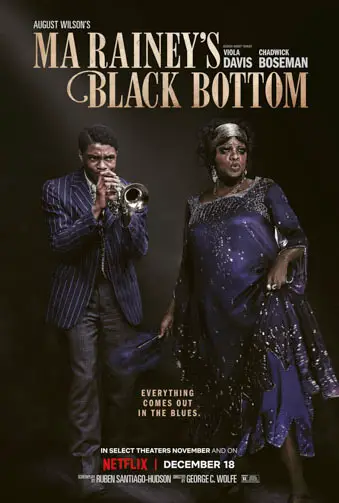
"…functions as an ode to Black culture, Black music, Black art..."
